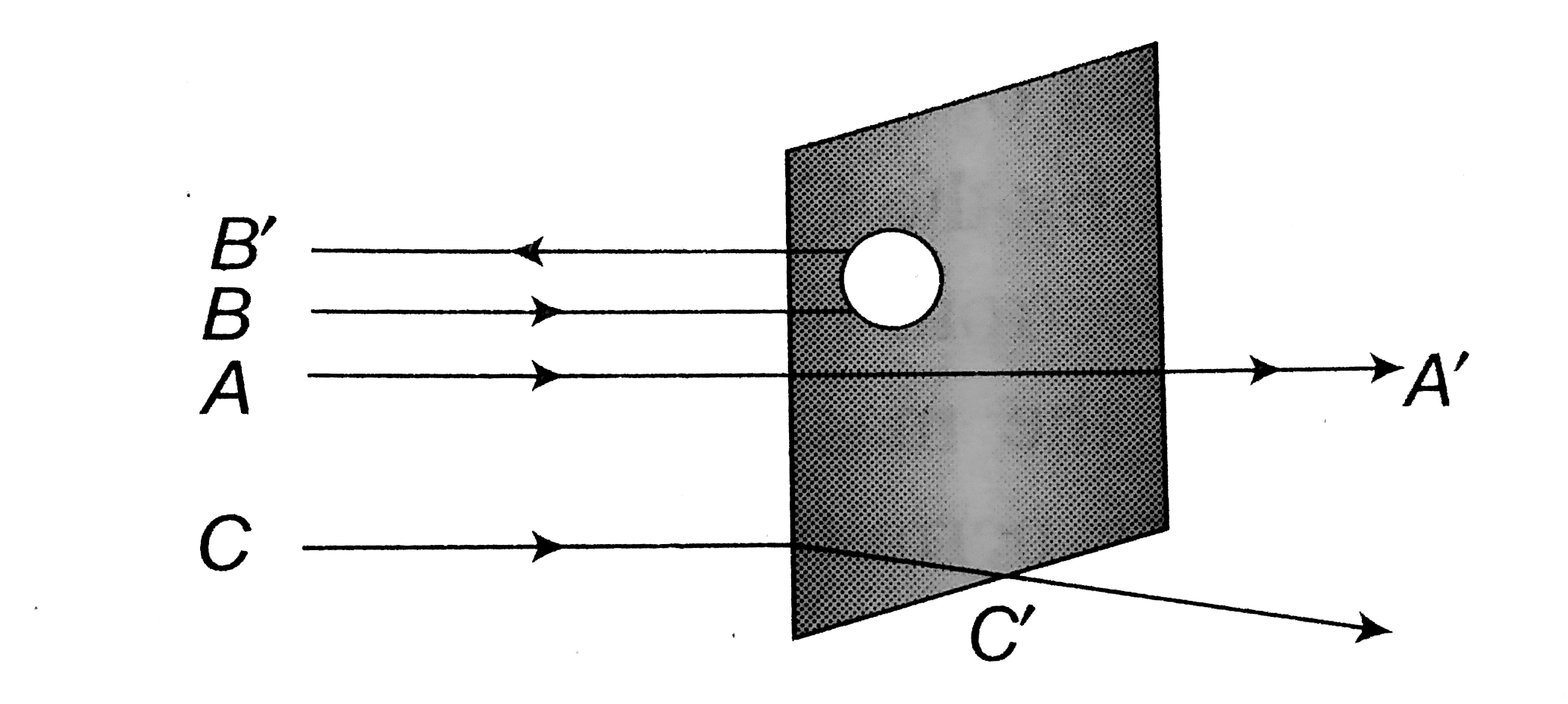Complete Solutions to Electron And Different Atomic Models of chapter ATOMIC PHYSICS of Class 12 book with complete answers and questions
| Class 12 | PHYSICS |
| Chapter | ATOMIC PHYSICS |
| A2Z | Electron And Different Atomic Models |
| Number Of Questions | 42 |
| Academic Year | 2023-24 |
The ratio of moment of an electron and an `alpha`-particle which are accelerated from rest by a potential difference of `100V` is
View SolutionWhen subjected to a transverse electric field, cathode rays move
View SolutionIn Millikan oil drop experiment, a charged drop of mass `1.8 xx 10^(-14) kg` is stationary between its plates. The distance between its plates is `0.90 cm` and potential difference is `2.0` kilo volts. The number of electrons on the drop is
View SolutionFrom the following, what charges can be present on oil drops in Millikan's experiment ?
View SolutionA narrow electron beam passes undeviated through an electric field `E = 3 xx 10^(4) "volt"//m` and an overlapping magnetic field `B = 2 xx 10^(-3) Weber//m^(2)`. If electric field and magnetic field are mutually perpendicular. The speed of the electron is
View SolutionCathode rays enter into a unifrom magnetic field perpendicular to the direction of the field. In the magnetic field their path will be
View SolutionThe specific charge of an electron is
View SolutionCathode rays are similar to visible light rays in that
View SolutionGases begin to conduct electricity at low pressure because
View SolutionA beam of electron is moving with constant velocity in a region having electric and magnetic fields of strength `20Vm^(-1)` and `0.5T` at right angles to the direction of motion of the electrons. What is the velocity of the electrons?
View SolutionKinetic energy of emited cathode rays is dependent on
View SolutionThe radius of the orbital of electron in the hydrogen atom `0.5 Å`. The speed of the electron is `2 xx 10^(6)m//s`. Then the current in the loop due to the motion of the electron is
View SolutionIn a Millikan's oil drop experiment the charge on an oil drop is calculated to be `16.35 xx 10^(-19) C`. The number of excess electrons on the drop is
View SolutionA metal plate gets heted, when cathode rays strike against it due to
View SolutionCathode rays are
View SolutionAn electron of charge 'e' coulomb passes through a potential difference of `V` volts. Its energy in 'joules' will be
View SolutionAn electron is accelerated through a potential difference of `200` volts. If `e//m` for the electron be `1.6 xx 10^(11)` coulomb/kg, the velocity acquired by the electron will be
View SolutionWhich is not true with respect to the cathode rays ?
View SolutionIn Millikan's experiment, an oil drop having charge `q` gets stationary on applying a potential difference `V` in between two plates separated by a distance 'd'. The weight of the drop is
View SolutionIn Thomson experiment of finding `e//m` for electrons, been of electron is replaced by that of muons (particle with same charges as of electrons but mass `208` times that of electrons). No deflection condition in this case satisfied if
View SolutionThe colour of the positive column ina gas discharge tube depends on
View SolutionThe speed of an eletctron having a wavelength of `10^(-10)m` is
View SolutionWhich of the following is not the property of a cathode rays
View SolutionAn electron is accelerated through a.p.d of `45.5` volt. The velocity acquired by it is (in `ms^(-1)`)
View SolutionOrder of `q//m` ratio of proton, `alpha`-particle and electron is
View SolutionA charge of magnitude `3e` and mass `2m` is moving electric field `vecE`. The acceleration imparted to the charge is
View SolutionAn electron initially at rest, is accelerated through a potential difference of `200` volt, so that it acquires a velocity `8.4 xx 10^(6)m//s`. The value of `e//m` of elctron
View SolutionAn `alpha`-particle is accelerated through a.p.d of `10^(6)` volt the `K.E.` of particle will be
View SolutionPositive rays consist of
View Solution`O^(++), C^(+), He^(++)` and `H^(+)` ions are projected on the photographic plate with same velocity in a spectrograph. Which one will strike farthest?
View SolutionIn an electron gun, the electrons are accelerated by the potential `V`. If the `e` is the charge and `m` is the mass of the electron, then the maximum velocity of these electrons will be
View SolutionIn Millikan's oil drop experiment, an oil drop mass `60 xx 10^(-6) kg` is balanced by an electric field of `10^(6) V//m`. The charge in coulomb on the drop, assuming `g = 10 m//s^(2)` is
View SolutionThe Rutherford `alpha`-particle experiment shown that most of the `alpha`-particles pass through almost unscattered while some are scattered through large angles. What information does it given about the structure of the atom ?
View SolutionAccording to the Rutherford's atomic model, the electrons inside the atom are
View SolutionAccording to classical theory, the circular path of an electron in Rutherford atom is
View SolutionRutherford's `alpha`- particle experiment showed that the atoms have
View SolutionIn interpreting Rutherford's experiments on the scattering of alpha particles by thin foil, one must examine what were known factors, and what the experiment settle. Which of the following is true in this context?
View SolutionA beam of fast moving alpha particles were directed towards a thin film of gold. The parts `A', B'` and `C'` of the transmitted and refected beams correcponding ro the incident parts `A, B` and `C` of the beam, are shown in the adjoining diagram. The number of alpha particles in

View SolutionThe diagram shown the path of four `alpha`-particles of the same energy being scattered by the nucleus of an atom simutaneously. Which of these are/is not physically possible ?

View SolutionIn Rutherford scattering experiment, what will b ethe correct angle for `alpha` scattering for an impact parameter `b = 0` ?
View SolutionIf scattering particles are `56` for `90^(@)` angle than this will be at `60^(@)` angle
View SolutionAn `alpha`-particle of `5MeV` energy strikes with a nucleus of uranium at stationary at an scattering angle of `108^(@)`. The nearest distance up to which `alpha`particle reaches the nuvles will be of the order of
View Solution
Electron And Different Atomic Models questions and complete solutions for chapter ATOMIC PHYSICS of A2Z PHYSICS (HINGLISH) of Class 12